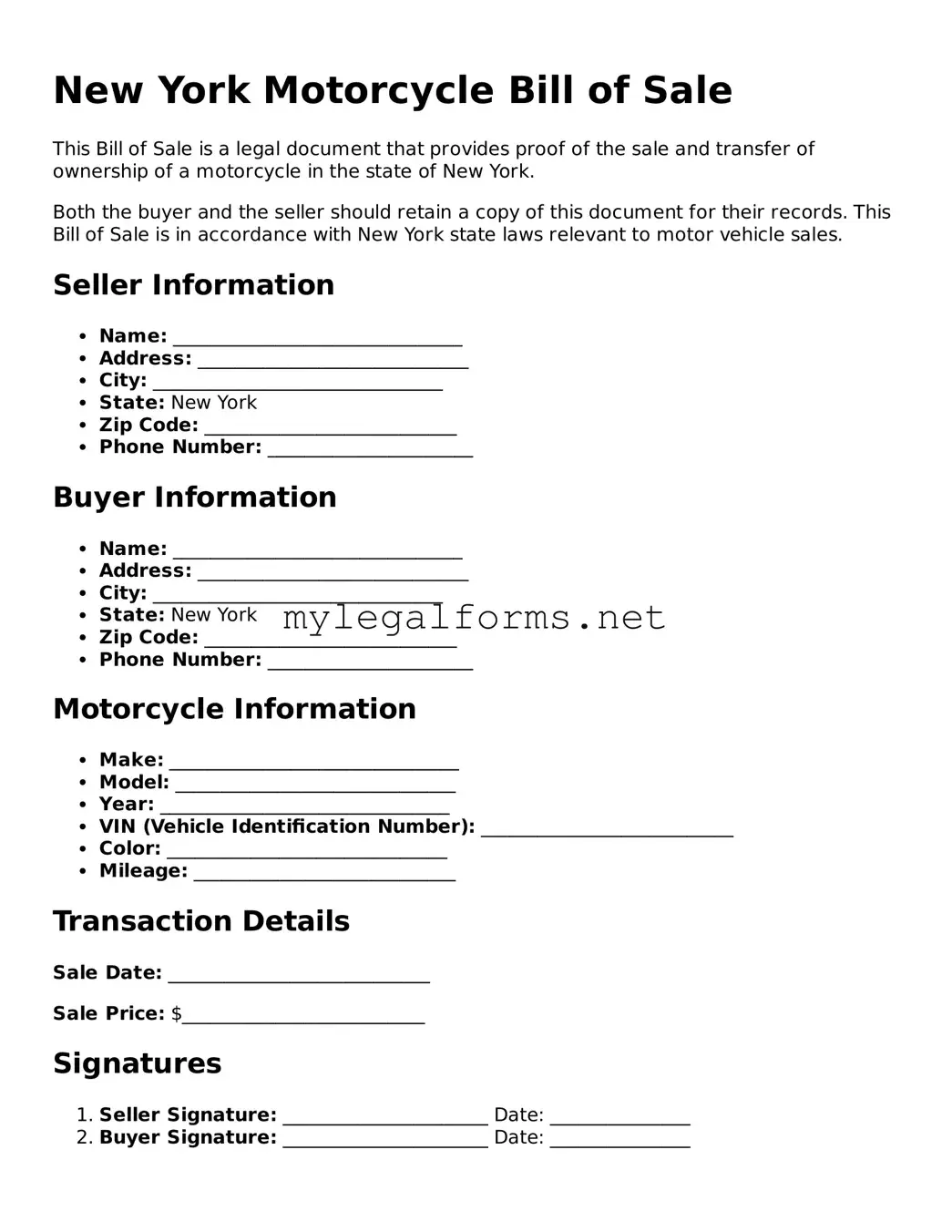Motorcycle Bill of Sale Document for New York State
The New York Motorcycle Bill of Sale form is a legal document that records the transfer of ownership of a motorcycle from one party to another. This form serves as proof of the transaction and can be important for both buyers and sellers. Understanding its components and requirements is essential for a smooth transfer process.
Launch Motorcycle Bill of Sale Editor

Motorcycle Bill of Sale Document for New York State
Launch Motorcycle Bill of Sale Editor

Launch Motorcycle Bill of Sale Editor
or
⇓ PDF Form
Complete the form at your pace — fast
Finish your Motorcycle Bill of Sale online and download the final version.